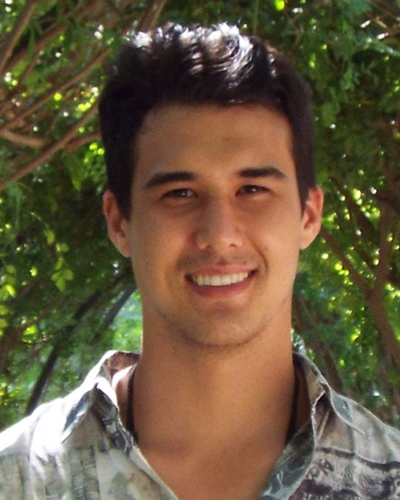Student awarded NSF Fellowship for automating speech-based disease classification
Perez’s research focuses on analyzing speech patterns of patients with Huntington Disease.

 Enlarge
Enlarge
CSE PhD student Matt Perez has been selected to receive a 2019 NSF Graduate Research Fellowship for his project aiming to automatically track the progression of Huntington Disease. Huntington Disease is a progressive neurodegenerative disease that impairs motor skills, cognition, and speech, and monitoring its progression is a key component to clinical research involving the development of new treatments. Perez’s research, advised by Prof. Emily Mower Provost, focuses on analyzing speech patterns of patients with Huntington Disease and identifying acoustic biomarkers that can be used to track symptom severity.
Current methods require in-clinic assessments that are expensive and time-consuming. Patients visit a clinic and record their speech for manual analysis – instead, Perez and Mower Provost envision an app that can collect patient data, perform analysis, and ultimately provide clinicians with more accurate and helpful information for remote health monitoring.
An automated, speech-based system would monitor symptoms more frequently and more effectively, allowing for real-time recording and analysis to provide an ongoing picture of disease progression. In the course of this research, Perez is consulting with speech pathologists and other clinical researchers from U-M and Northwestern University.
A unique challenge presented by the project is the limited data available on Huntington Disease.
“Many current projects in the CS field are big-data driven,” says Perez. “But with the specific application of Huntington Disease, which is fairly rare, we don’t have the luxury of applying traditional big data approaches.”
Instead, Perez works on developing tailored solutions that lean on clinical information and research, which he says highlights the importance of clinical collaboration. “As computer scientists, we can provide insight about the strengths and limitations of specific machine learning techniques so that we can ultimately work towards creating strong, robust models that are tailored for characterizing Huntington Disease using speech.
This summer, Perez will be conducting further research on applying speech analysis and signal process to the health domain during an internship at MIT Lincoln Laboratory in Boston. Some of his work there will focus on applying machine learning and speech processing for monitoring health/well-being.